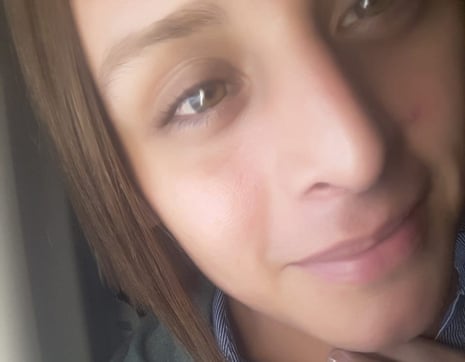A transgender woman who died after becoming sick in Immigration and Customs Enforcement (Ice) custody had asked to be deported after she was repeatedly denied medical care, attorneys said on Wednesday.
The family of Johana Medina León, a 25-year-old asylum seeker from El Salvador who died this month, filed a civil rights claim against the US government this week, alleging that officials ignored her numerous requests for treatment as her health “rapidly deteriorated”.
Medina León, who worked as a nurse in El Salvador, recognized that she needed IV fluids, but was denied. When she asked for water, sugar and salt so she could make her own IV, Ice also refused, the claim said. The treatment in Ice custody was so bad that Medina León, who was fleeing violence in her home country, requested to be deported so she could get medical attention, lawyers said. That request was also denied.
“She came to the US because she thought it was a great country and that she would be safe there,” her 22-year-old sister, Gabriela León, said in an email to the Guardian, sent by her lawyer. “She did everything right but was treated as a criminal … She shouldn’t have died. She went to the US seeking protection and now she is coming home to us dead.”
Christopher Dolan, an attorney who filed the claim, added: “She was desperate, because the government would not provide her with assistance of any kind for her medical needs.”
The death of Medina León, who was detained for more than a month despite following official procedures for seeking asylum and passing her first interview, comes at a time of escalating concerns about human rights violations in US immigration facilities. Queer and trans migrants are particularly vulnerable, suffering disproportionate rates of physical and sexual abuse behind bars and often being forced into solitary confinement.
The legal claim of Medina León’s family, the first step in a formal lawsuit, was filed one year after Roxsana Hernández, a trans Honduran woman, died in Ice custody due to dehydration and complications related to HIV. At least 24 immigrants have died in Ice detention during the Trump administration, and six migrant children have died in federal custody since September, most becoming ill in the US border patrol’s crowded temporary holding areas.
Medina León was threatened with physical violence because she is a trans woman and fled El Salvador in December 2018, lawyers said. She was granted a humanitarian visa in Mexico and then presented herself to US authorities to request asylum.
“In El Salvador, as a transgender person, she was unable to live her life in peace and without fear of violence,” her sister said, adding that she had hoped in the US “she would be treated with dignity and respect living her life as her true self, a female”. The only place she had family outside of El Salvador was the US.
She was subsequently detained in El Paso, Texas, in April and transferred to the Otero county processing center in New Mexico. Like other trans women at the privately run detention center, she was housed with men.
On 18 May, authorities determined she had “credible fear” of persecution if forced to return to El Salvador, but Ice continued to detain her. She eventually became unconscious and was taken to a Texas hospital, her attorneys said. That same day, she was released on parole.
Dolan, a San Francisco-based lawyer, accused Ice of finally releasing her when she became seriously ill in an effort to “absolve themselves of responsibility”.
Leticia Zamarripa, an Ice spokeswoman, declined to comment on the legal claim on Wednesday, but last week issued a statement saying Medina León had been hospitalized due to chest pain and that her case was “reviewed” that day, leading to her release from custody.
The family had communicated with her regularly while she was in Otero, said Gabriela León, saying her sister had gotten “sicker and sicker” but had received no help: “She said she wanted to give up trying to get asylum and just be deported so she could get help … She just wanted to go home where she knew she might be attacked but she felt it would be better than dying in jail.”
On 1 June, they learned she had died of pneumonia.
Ola Osaze, a national organizer with the Black LGBTQIA+ Migrant Project, said trans migrants were often denied asylum despite overwhelming evidence of the conditions they are fleeing: “It is cruel and unusual to detain us when we are seeking help. This is something that no government can justify … It is a form of torture and it needs to stop.”
At Otero, where Medina León was held, trans detainees have complained of a range of challenges, including difficulties seeing a doctor, troubles accessing attorneys, guards who don’t respect their gender, inadequate food and threats of solitary confinement, said Lynly Egyes, the litigation director of the Transgender Law Center.
“Trans people cannot be held safely in detention,” she added.
Last week, Ice claimed that detainees received “comprehensive medical care” and had a “full health assessment” within two weeks of entering Ice custody.
Emilio Vicente, the communications manager with Familia: Trans Queer Liberation Movement, said Medina León’s request for deportation signaled just how horrific her treatment must have been: “She was in such a dire situation that she felt the only way for her to survive was going back … and even then, Ice didn’t take any action to honor her request.”
Gabriela said she wanted people to remember her sister as “a very good person, a kind person, a caring person who had dedicated her life to helping others as a nurse”, adding: “She didn’t need to die.”
